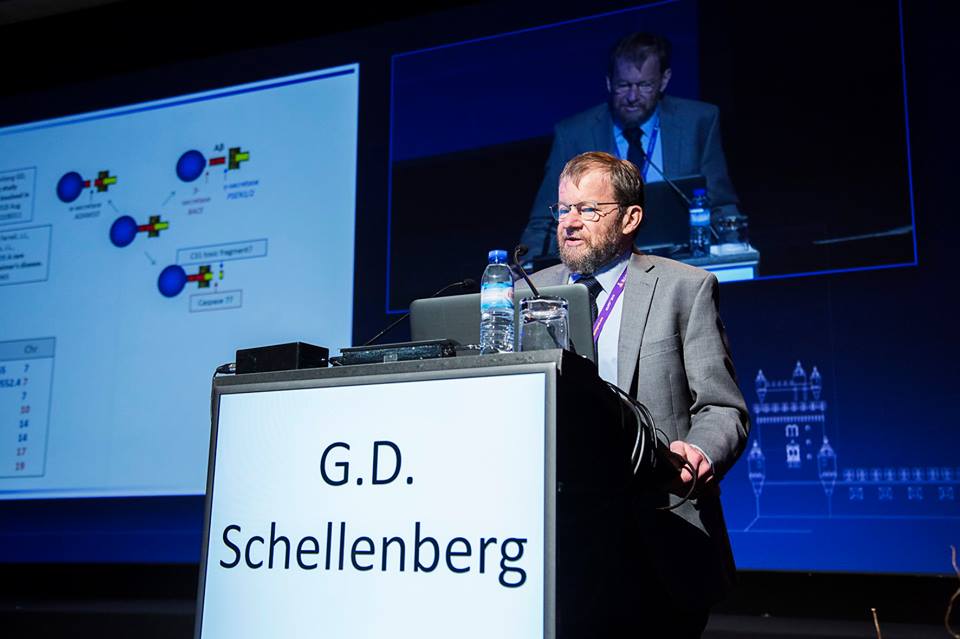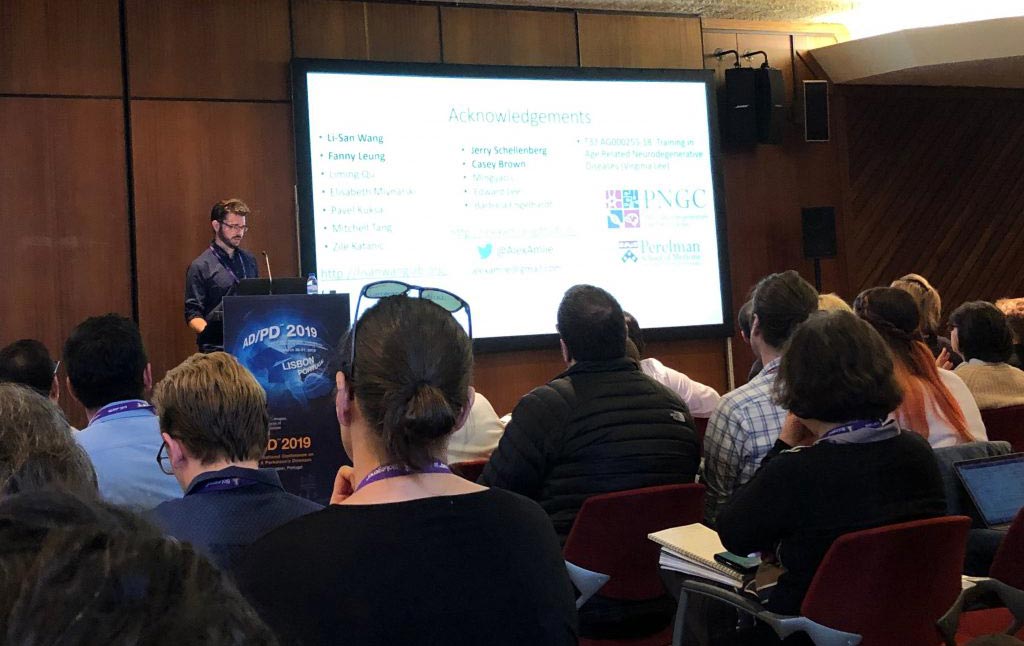
AD/PDTM 2019, the 14th International Conference on Alzheimer’s and Parkinson’s Diseases and related neurological disorders, was held in Lisbon on March 26-31. The conference is at the forefront of unraveling the mechanisms and improving the treatment of Alzheimer’s, Parkinson’s and other related neurodegenerative diseases. AD/PDTM Conferences uniquely combine distinct neurodegenerative diseases in one setting and examine their similarities and differences; a strong focus is mechanisms of disease, prevention and therapy (from https://adpd.kenes.com/2019/general-information-(2)/welcome-to-ad-pd#.XLyx3C-ZPUo).
A symposium session on the Alzheimer’s Disease Sequencing Project was held on March 26, with over 200 participants attending. Five ADSP principal investigators (Gerard Schellenberg, Lindsay Farrer, Margaret Pericak-Vance, Richard Mayeux and Jonathan Haines) presented the overview of AD genetics, status of the sequencing project, major findings from the project so far, and future plans. The presentations were followed by an interactive round table discussion, in which the attendees got a chance to ask these experts about their insights, as well as hear their comments on topics like study design and integration of other data types such as transcriptomics.
Two PNGC lab members, Fanny Leung (Research Assistant Professor) and Alex Amlie-Wolf (PhD student)’s abstracts were chosen for symposium presentations. Fanny presented her work on “Circulating CSF small RNA biomarkers for Alzheimer’s Disease” while Alex presented his work on “Inferring the shared noncoding regulatory mechanisms underlying genetic susceptibility to Alzheimer’s and Parkinson’s diseases”.
AlzForum wrote an interesting article on conference takeaways and what the future of the field may look like. Alex Amlie Wolf was quoted, noting that “We are learning to navigate the post-GWAS world.”
Fanny and Alex both enjoyed the poster sessions, receptions, and Lisbon during this week’s conference! It was a rewarding experience to attend an AD focused conference with emphasis on understanding disease mechanisms and clinical trial status.

